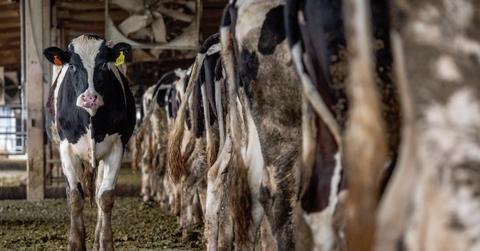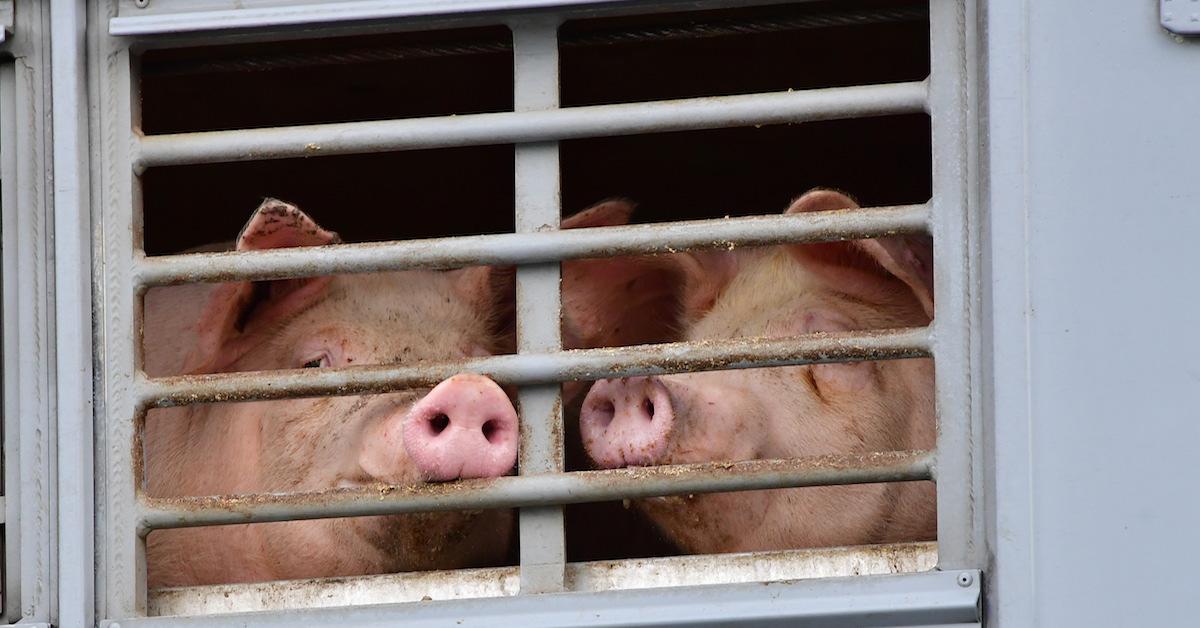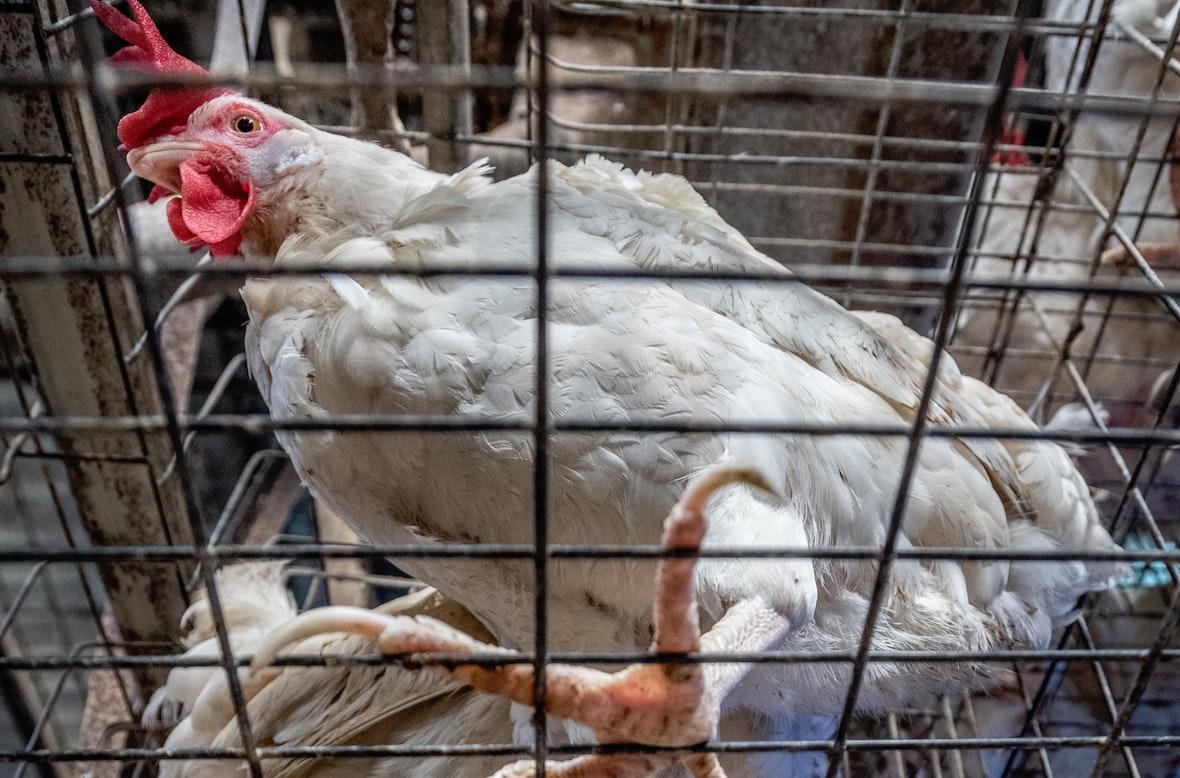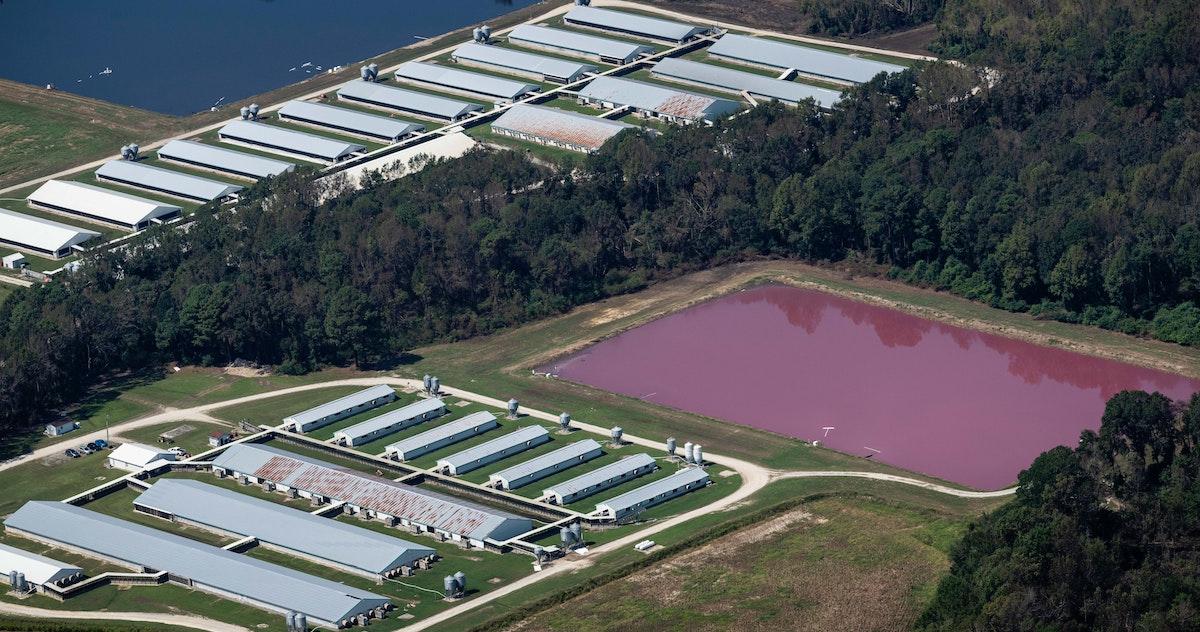Factory Farming Isn't Just Bad for Animals and the Environment, It's Bad for Us
Published Sept. 30 2021, 2:51 p.m. ET

When you walk into a grocery store and buy a product made from an animal, chances are good that it was produced through factory farming. Even if you don't know what factory farming is, you’ve likely heard tales about the horrific conditions that animals on industrial farms are made to endure. Nevertheless, you might not be aware of all the destructive ways that factory farming affects the environment, the public health, and the rural communities that rely on it for their livelihoods.
What is factory farming?
According to The Humane League, factory farming is an industrial method of raising livestock, whether it's for food, leather, wool, or any other use. In a given year, about 10 billion animals in the U.S. are raised and killed for meat, dairy, and eggs. The idea behind factory farms is simple; use the least amount of resources that you can, in order to maximize your profits. Most of the time, this involves cutting corners.
Animals are confined to smaller living spaces, fed food that is less nutritious and more fattening, and kept in close proximity to maximize production. It is not a good life for the animals, some of whom are never allowed to see the light of day nor tread upon actual earth. But neither is it a good vocation for the individuals who work on the farms.
The people who run these facilities are forced to witness or deliver cruelty unto their charges, or else risk losing their livelihood in a sea of demanding investors and hungry Americans. In the clip below, comedian John Oliver discusses the inherent cruelty of the factory farming industry, as well as the emotional and economic plight of those whose jobs and families depend on it.
How does factory farming affect the environment?

Factory farming is terrible for a great many reasons, but as far as the environment is concerned, the most egregious sin has to do with pollution.
Factory farming greatly contributes to global warming.
Factory farming is one of the biggest contributors of greenhouse gas emissions on the planet. According to Do Something, it accounts for 37 percent of all global methane emissions, and methane warms the planet about 20 times faster than CO2. Hydrogen sulfide and ammonia are also emitted by factory farms and contribute to the greenhouse effect.
That doesn’t even count the amount of fossil fuels that are burned to feed, house, and transport the animals and subsequent animal products themselves. Fertilizer, which is used to grow feed crops for livestock, is also produced by burning fossil fuels. A whopping 41 million tons of CO2 are emitted each year in order to create this fertilizer.

Factory farming pollutes local habitats, water sources, and surrounding areas.
Water and soil pollution is also fairly prevalent in industrial farming areas. 10 billion animals produce an awful lot of manure — approximately 1 million tons or more, according to Pace University. That waste doesn’t just contain traces of salt and heavy metals which can accumulate in water and affect the food chain. It also contains dangerous amounts of phosphorus and nitrogen, the latter of which can cause water to become anoxic and unable to support life.
In addition, animal waste from factory farms contains trace amounts of undigested antibiotics, which are given to the animals to prevent bacteria and disease from spreading in such confined, filthy, overcrowded spaces. When that waste makes it into the water table, whole ecosystems are affected from the bacterial level up, eventually breeding new and dangerous zoonotic bacteria that go on to affect humans as severely as the swine flu, bird flu, or the Nipah virus.

Factory farming leads to deforestation.
In order to make room for the animals, feed crops, and the farm locations themselves whole swaths of land need to be clear cut out of the way. According to Mala Forest, factory farming in the U.S. has resulted in more than 260 million acres of forested land being cleared away to make room for feed crops alone. In the same way, whole rivers and reservoirs need to be repurposed for use by these massive farms.
Factory farming needs to change.
Until the world starts adopting a more sustainable, plant-based lifestyle, the mass production of animal-based food sources is going to continue to be a necessary evil. That said, the only thing stopping the industrial farm industry from being safer, more eco-friendly, and more humane, is ultimately money — something which the majority of factory farm owners have more than enough of, in large part thanks to government agricultural subsidies.
If that mindset does not change, nothing else will either. In the meantime, the best we, as individuals can do is to make dietary changes in our own lives and continue to fight for the rights of animals and our own rights as fellow citizens of the planet that these monstrous industrial farm owners are currently polluting.